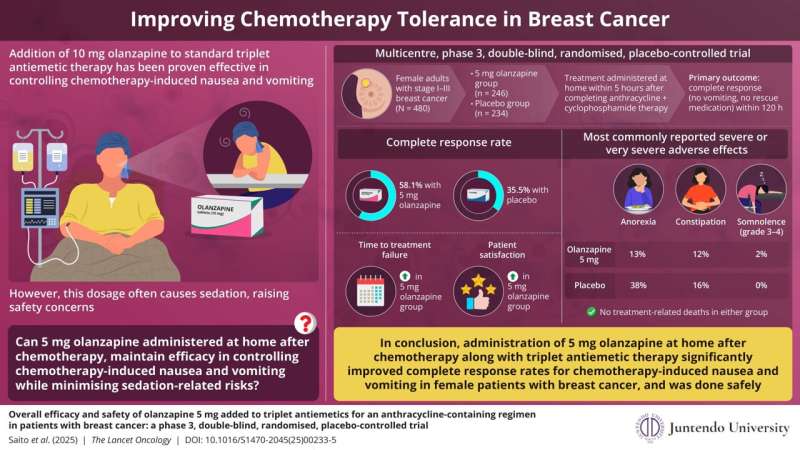Understanding Queasiness: Symptoms, Causes, and Finding Relief
Feeling unusually “queasy” can rango from a mild stomach upset to the precursor of vomiting. But what does it mean exactly to feel queasy? What causes that vaguely uneasy sensation, and when should you seek medical treatment?
Defining Queasiness
The term “queasy” describes an unsettled sensation in the stomach and digestion related to nausea. Some key aspects help define queasiness:
- A subjective sensation of stomach discomfort rather than identifiable pain
- Lack of appetite, feeling of fullness, difficulty eating
- Possible lightheadedness, cold sweat, increased salivation
- May precede vomiting if nausea increases
So in essence, feeling queasy relates to the early onset of digestive distress associated with nausea before more severe symptoms emerge. It falls short of stomach flu, food poisoning, or motion sicknessintensities but still feels “off”.
Queasiness vs. Dizziness and Heartburn
Stomach unsettlings get confused with other common sensations. So how does mild queasiness compare to dizziness or heartburn?
- Dizziness affects balance and spatial perception, not the gut. Queasiness may accompany dizziness though.
- Heartburn feels like burning chest and throat pain. Queasiness brings more upper abdominal discomfort.
Paying attention to exactly where and how sensations manifest can help distinguish queasiness from related experiences.
Common Causes of Feeling Queasy
Queasiness results from anything that distresses your gastrointestinal system without necessarily making you ill. Some main causes include:
Medication Side Effects
Many pharmaceuticals list nausea or stomach upset as potential side effects. Antibiotics, pain relievers, antidepressants, chemotherapy drugs, and anesthesia medications especially prone to causing queasiness.
If symptoms emerge after starting a new medication, talk to your doctor about alternatives or ways to manage queasiness.
Anxiety and Stress Reactions
The gut maintains constant communication with the brain through neural, hormonal, and immune channels. Stress triggers production of nausea-inducing hormones and neurotransmitters.
As a result, anxiety and high tension levels frequently manifest physical queasiness symptoms alongside mental distress through activation of the “gut-brain axis”.
Motion Sickness Susceptibility
Balance-confusing movement like riding in cars, planes, boats, or amusement park rides stirs up queasiness in motion sickness-prone individuals.
It often stems from sensory mismatch between inner ear inputs and visual surroundings in motion. This feeds brain signals that can induce nausea as an early warning sign before vomiting.
Food Intolerances and Sensitivities
Many people suffer from undiagnosed Unable to fully break down problem foods, irritation and inflammation follows. This sensitizes the enteric nervous system lining the digestive tract, causing subsequent exposures to trigger queasiness.
Common culprits include dairy, grains with gluten, alcoholic beverages, and fried or very rich foods.
Coping with Queasiness Episodes
Mild queasiness usually fades quickly But recurring or worsening episodes warrant active intervention. Here’s how to stop feeling queasy:
Identify and Avoid Triggers
Keep a food and symptom log. Note connections between new medications or suspect food reactions and subsequent queasiness timing.
Avoid likely trigger sources. If queasiness follows certain travel modes, plan alternative routes when possible.
Stay Hydrated
Dehydration and electrolyte imbalance often contribute to queasiness. Sip clear broths or sports beverages with sugars, salts, and minerals for hydration without taxing digestion.
If vomiting accompanies severe nausea, seek medical support to offset dehydration effects.
Try Soothing Natural Remedies
Ginger, mint, chamomile, and lemon balm can calm gastro distress without medication. Try gentle teas, aromatherapy, acupressure wrist bands, or supplements.
Peppermint oil capsules in particular may ease stomach muscles spasms and queasiness symptoms.
Ask About Prescription Antiemetics
If self-care strategies fail to provide queasiness relief, prescription antiemetics treat nausea more aggressively.
Medications like ondansetron (Zofran) or prochlorperazine (Compazine) deactivate the brain’s vomiting center signals. Side effects exist but may offer necessary relief for persistent queasiness.
When to Seek Emergency Care
Most queasiness causes little serious harm and disappears quickly But severe or worsening nausea paired with other “red flag” symptoms requires prompt medical intervention. Seek ER evaluation for:
- Intense pain alongside nausea and vomiting
- High fever, stiff neck, confusion, and nausea
- Jaundice (yellowed skin) developing with nausea
- Signs of stroke like numbness or slurred speech with nausea
- Inability to keep liquids down for over 24 hours
- Blood or unusual color in vomit
Trust your instincts - dramatic nausea changes or debilitating intensity warrants immediate care, especially alongside other red flag health issues.
Staying Well: Preventing Queasiness
Once any underlying condition triggering queasiness receives appropriate treatment, focus on maintaining long-term digestive health through:
- Avoiding dietary triggers like food allergens, spicy dishes etc
- Managing stress through lifestyle changes and therapy rather than allowing anxiety to manifest physically
- Practicing careful medication management and asking about anti-nausea alternatives
- Considering probiotic and prebiotic supplements to support gut microbiome balance
Pay attention to your body and act quickly when nausea seems excessive or dangerous. Trust your care team to help distinguish occasional queasiness from more serious illness.
FAQs
What does it mean to feel queasy?
Feeling queasy refers to a subjective sensation of stomach discomfort and digestive unsettledness related to nausea arising before more severe vomiting symptoms emerge.
Is queasiness serious or can I treat it myself?
Mild queasiness usually disappears quickly with home treatment like hydration, ginger ale, and rest. But worsening nausea paired with other symptoms may indicate dangerous illness needing ER evaluation.
What are some top causes of feeling queasy?
Common triggers causing people to feel queasy include medication side effects, anxiety manifesting through the gut-brain connection, motion sickness, food sensitivities, infections, and more.
How can I prevent and stop feeling queasy?
Strategies to ease queasiness episodes include avoiding trigger exposures, staying hydrated with electrolytes, trying natural home remedies, taking prescription anti-nausea medications in difficult cases, and managing underlying conditions.
Disclaimer: This article is for informational purposes only and does not constitute medical advice. Always consult with a healthcare professional before starting any new treatment regimen.
Related Coverage
Queasiness describes an unsettled stomach sensation related to early nausea without necessarily vomiting. Causes include medication, motion sickness, stress, food triggers....
Nausea is a common side effect of fasting. Drink water, use acupressure, take supplements like ginger, and relax to ease symptoms. See a doctor if nausea is severe....
Today's porn saturation has normalized monotonous, male-centric sex routines. Women report predictability and laziness leaving them turned off and nauseated....
Explore the potential causes of tea-induced nausea, such as caffeine, tannins, and acidity, and discover effective strategies to prevent and alleviate this discomfort....
Find effective chemo-induced nausea relief with low-dose olanzapine, diet tips, and safe strategies to stay strong during treatment....
Nighttime nausea has many potential causes including GERD, pregnancy, migraines, gastroparesis, anxiety, and medication side effects. Tips to relieve and prevent nausea....
Do you feel nauseated at night as a female? Discover common causes like hormones, acid reflux, stress, food sensitivities. Get tips to prevent and treat nausea....
When you feel sick to your stomach, use creative euphemisms like “tossing cookies” or “driving the porcelain bus” instead of saying “throwing up.” More polite and funny synonyms for vomiting....
Learn about ondansetron side effects, how to manage them, and what to expect during treatment for nausea and vomiting....
Find out the correct ondansetron dosage for adults and kids, timing, forms, and safety tips to relieve nausea quickly and safely....







